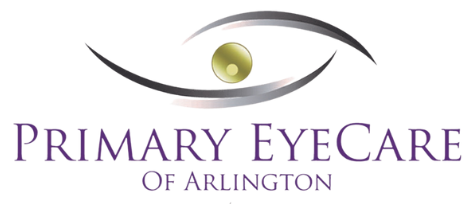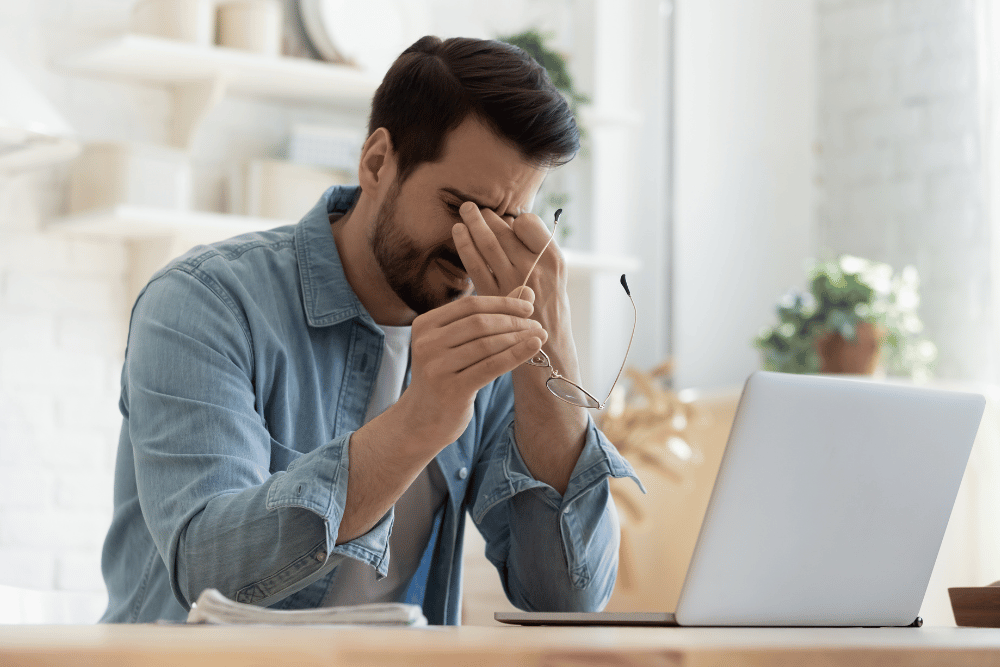Dry eye syndrome is a common condition that affects millions of people, especially women who are going through menopause. While eye drops can provide temporary relief, there are other strategies you can use to address menopause-related dry eye.
In this blog, we will share what dry eye syndrome is, how menopause can cause it, and what women can do to get relief.
What is dry eye syndrome?
Before we explore ways to manage dry eye symptoms, it’s important to first understand what dry eye syndrome is. Dry eye syndrome is a condition where the eyes do not produce enough tears or produce tears that evaporate too quickly. This can lead to uncomfortable symptoms like itching, burning, redness, light sensitivity, and blurred vision.
What causes dry eye during menopause?
Menopause affects the body in many ways, including your eye health. As estrogen levels decrease, this can affect tear production, leading to dry eye syndrome. Hormonal changes during menopause can also impact the quality of your tears, making them less effective at keeping your eyes lubricated and protected. Other factors such as aging, medication, and medical conditions like autoimmune disorders can also contribute to dry eye during menopause.
Ways to relieve dry eye during menopause
In addition to eye drops, there are several other ways to get relief from dry eye during menopause. Here are some options:
1. Adjust your diet
Eating foods rich in omega-3 fatty acids, like salmon, sardines, walnuts, and flaxseed, can improve dry eye symptoms. In addition to eating a balanced diet, staying hydrated is also essential for managing dry eye symptoms. Drinking plenty of water throughout the day can help keep your eyes moist and comfortable. Avoiding caffeine and alcohol can also help prevent dehydration and keep your eyes feeling healthy.
2. Practice good eye care habits
Taking good care of your eyes is essential for maintaining their health and preventing dry eye. This includes wearing sunglasses to protect your eyes from UV rays, taking breaks when using a computer or other digital devices, and avoiding smoking and secondhand smoke. Using a humidifier in your home or office can also help keep the air moist and prevent dry eye symptoms.
3. Try supplements
According to research, taking certain supplements can help relieve dry eye symptoms. Supplements like omega-3 fatty acids, vitamin D, and vitamin A have all been shown to have a positive effect on dry eye symptoms. However, before starting any new supplements, it’s important to speak with your doctor. Certain supplements can interact with other medications you may be taking or have potential side effects.
4. See an eye doctor
If you’re experiencing severe or persistent dry eye symptoms, it’s important to talk to your eye doctor. They can recommend other treatments such as prescription eye drops, punctal plugs, or other medical procedures to address your symptoms.
At Primary Eye Care in Arlington, TN, we offer advanced treatments for dry eye that go beyond eye drops:
- OptiLight: OptiLight intense pulsed light (IPL) therapy uses gentle pulses of light to stimulate the glands in your eyelids that produce tears. It is a quick and non-invasive procedure that can provide long-lasting relief from dry eye symptoms.
- TearCare®: TearCare® is an innovative and effective treatment that uses thermal pulsation technology to help unclog the oil glands in your eyelids. During treatment, a small device is placed on your eyelids and gently applies heat and pressure to the glands. This helps to break down any blockages and promote the natural flow of oil.
- ZEST: ZEST (Zocular Eyelid System Treatment) is a deep cleaning procedure for the eyes that removes impurities and debris from the eyelids and lashes. This procedure is a quick and painless treatment for dry eye caused by blepharitis (inflammation of the eyelids), meibomian gland dysfunction, or an infestation of Demodex mites.
If allergies are causing your dry eye, we also offer allergy testing to identify specific allergens that may be causing or contributing to your dry eye symptoms. AllerFocus™ allergy testing allows us to pinpoint the root cause of your dry eye symptoms and develop a personalized treatment plan that addresses your unique needs.
Dry eye caused by menopause is a common and often frustrating condition, but there are many ways to address it beyond eye drops. By making lifestyle changes, adjusting your diet, and exploring other treatment options, you can find relief from your dry eye symptoms and improve your overall eye health. If you’re experiencing dry eye, contact us today in Arlington to learn about your options and find a treatment plan that works for you.




